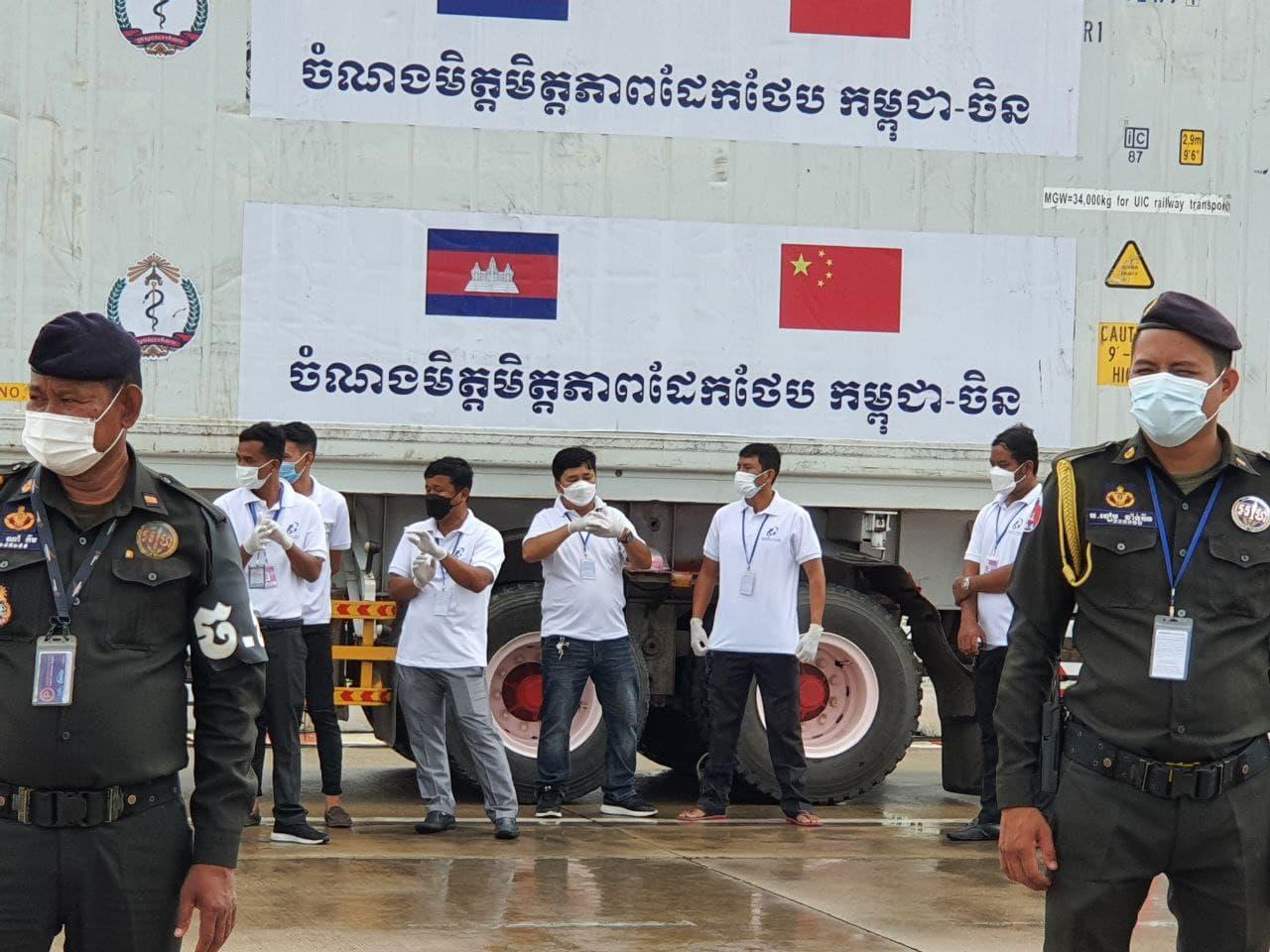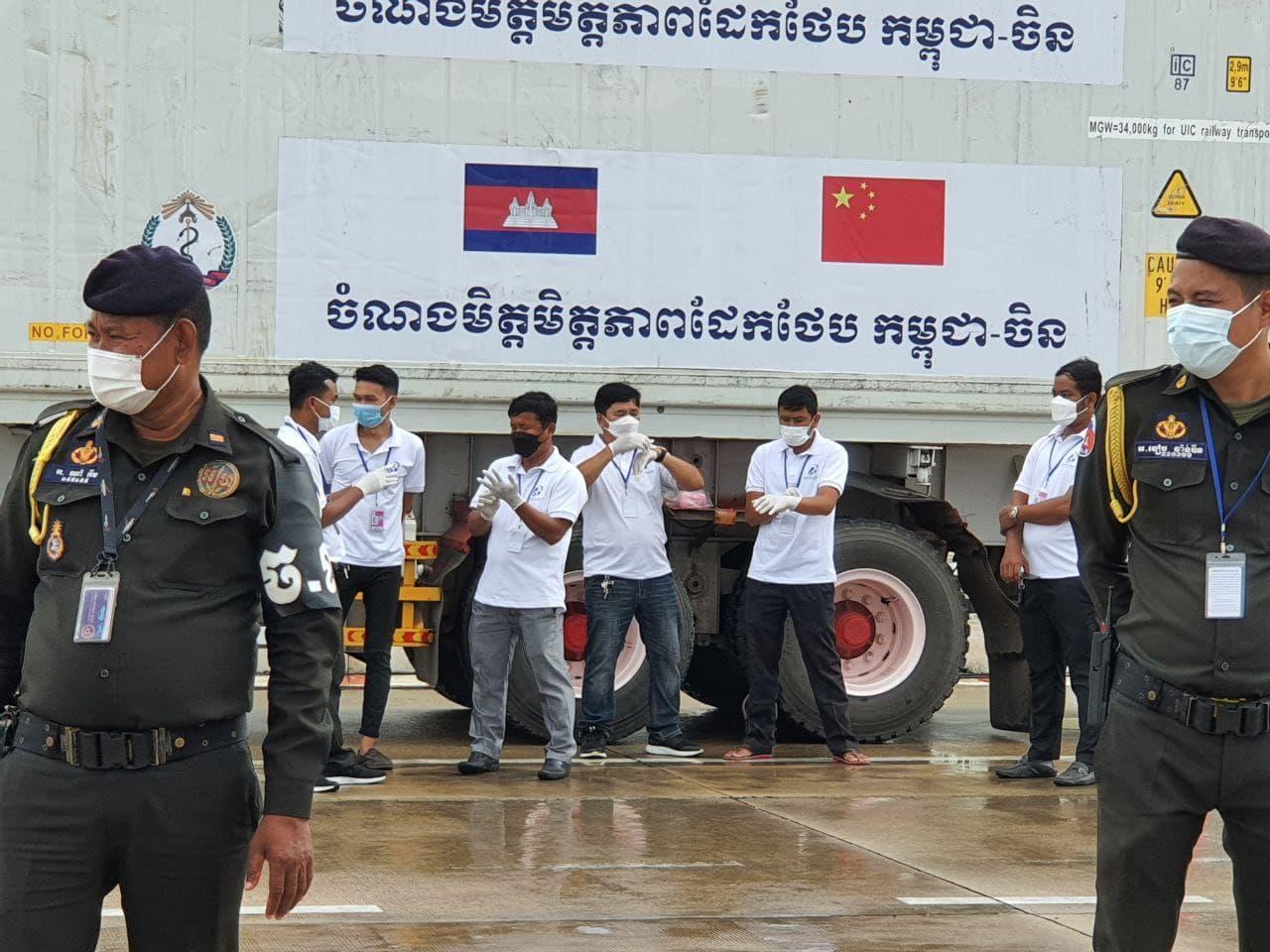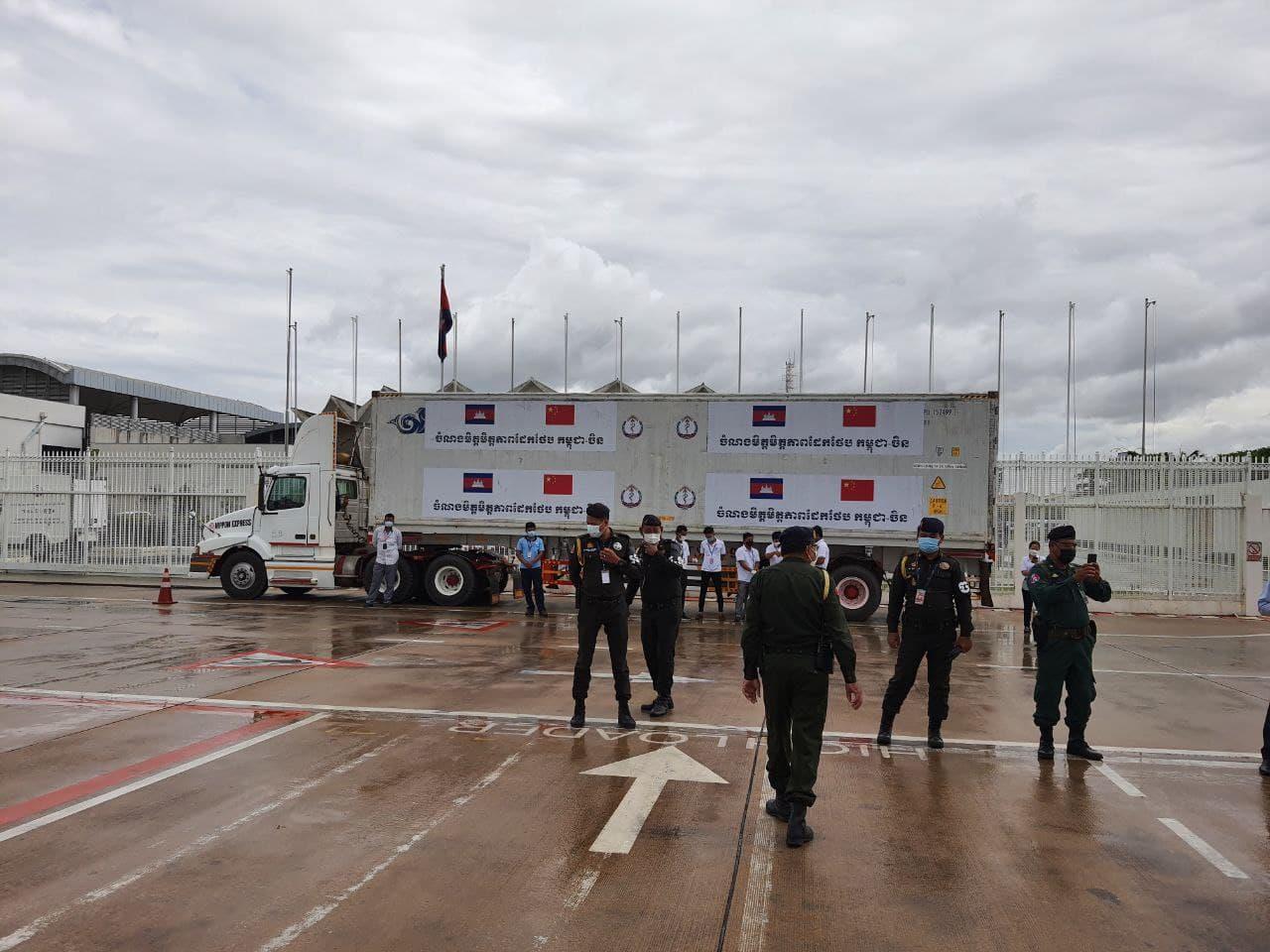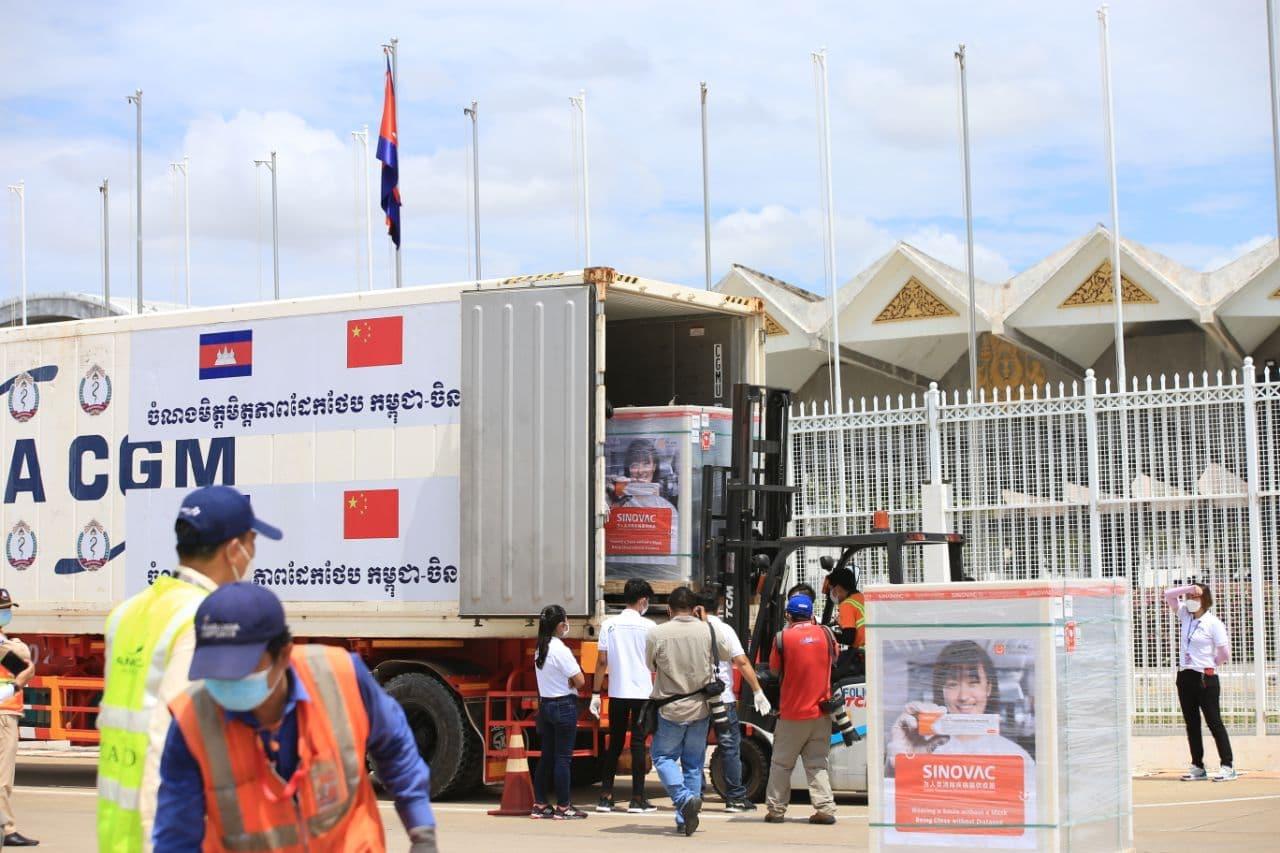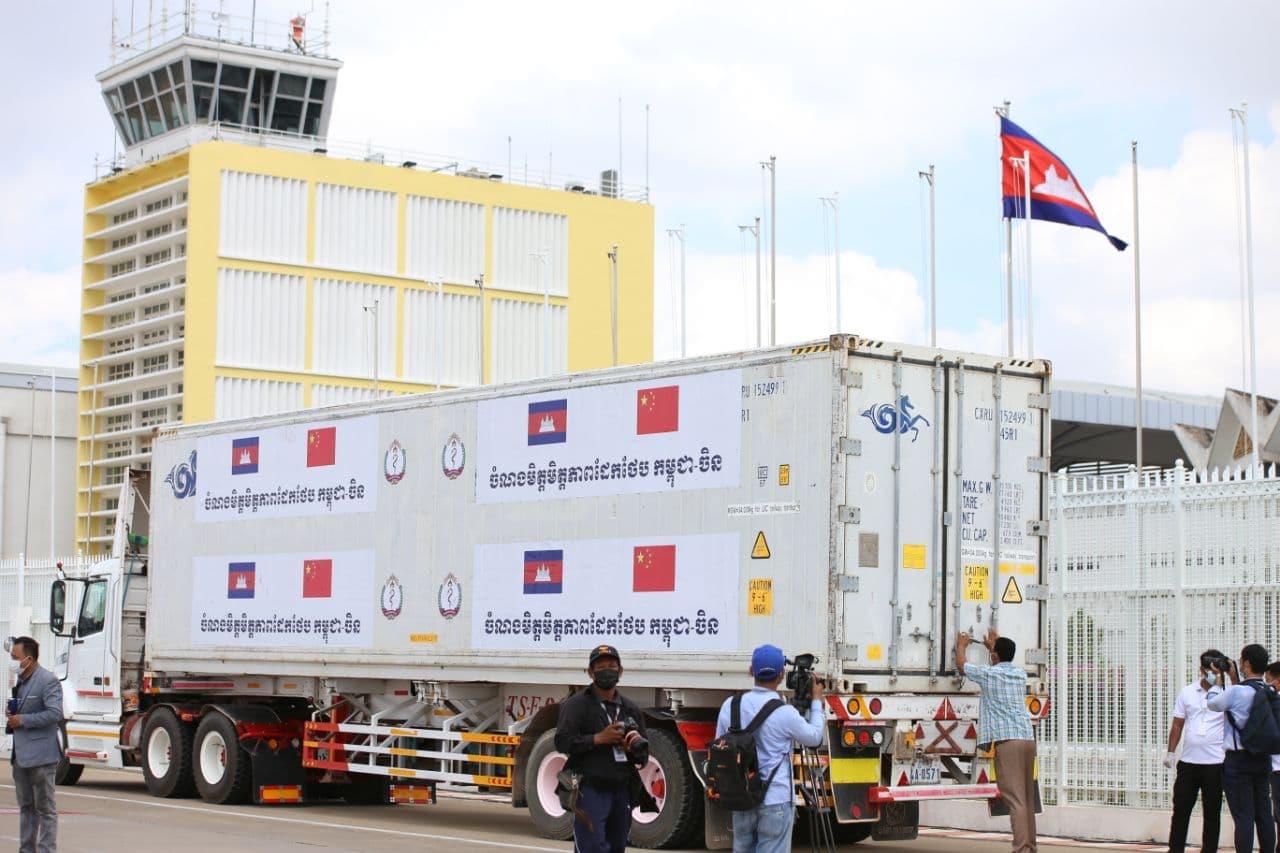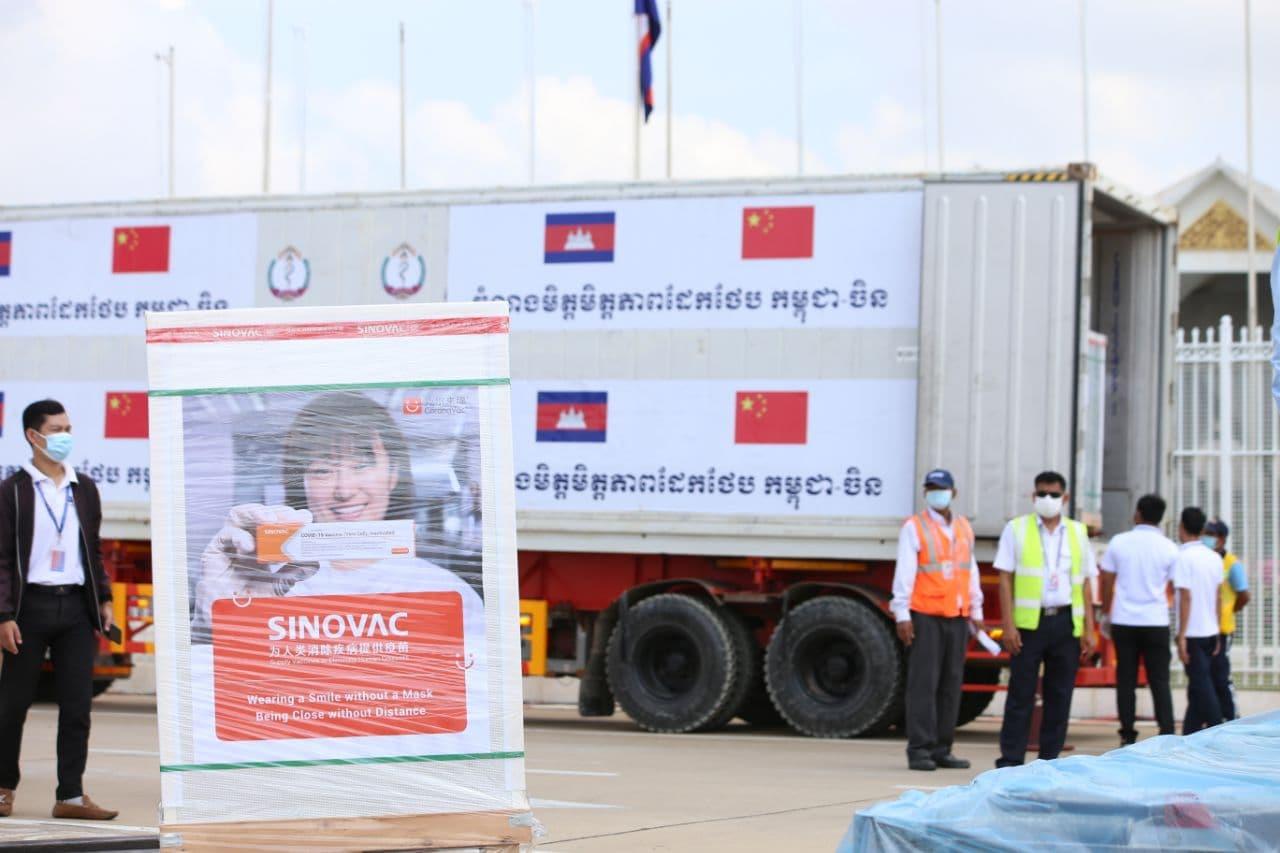Phnom Penh (FN), Jun. 11 – Until now, Cambodia has vaccinated nearly 3 million of its population, which is close to 30 percent of the targeted 10 million population, or 17 percent of the whole population. According to this statistic, Cambodia ranks second behind Singapore among ASEAN countries. This is indeed eye-opening for other countries that never expected such a small country with limited resource to have the capacity to sustain vaccination rollout campaign for frontline workers, government officials and priority groups, as well as its regular citizens, in the same way developed countries are implementing.
One may have remembered that when the COVID-19 Vaccines were still in development phase and were available for orders or purchases, many countries were competing for the vaccines while some others were hesitant due to various reasons. On the other hand, for Cambodia, one must acknowledge that the Royal Government of Cambodia (RGC) has timely made the right decision since the beginning, regarding the receipt and procurement of the COVID-19 Vaccines by considering that the vaccine is a strategic necessity for Cambodia, in order to combat and eradicate the spread of COVID-19. Cambodia has maintained a proactive approach to start procuring vaccines as soon as possible, without waiting for any globally equitable distribution. This appropriate and timely decision is neither a coincidence nor even an adventure, but this is indeed a result from meticulous consideration and proactive efforts of the RGC, that is always prepared ahead of any crisis development, in the same manner as how Samdech Akka Moha Sena Padei Techo HUN SEN frequently and recently stated that “Our country is poor, but we are not “poor” in searching for ways to protect our people’s lives”.
In the above spirit, the RGC established an Inter-Ministerial Working Group For Consultation and Negotiation on the Procurement of the COVID-19 Vaccines since the end of 2020, in order to launch a sound plan and strategy to timely and adequately purchase and procure the vaccines, given the actual demand and current situation of Cambodia, to maintain effectiveness of the National Strategic Plan of COVID-19, which aims to vaccinate the 10 million adult Cambodian citizens. Cambodia has also made its vaccine procuring strategy transparent, based on the following principles and conditions: 1) safety, quality and efficacity, 2) accessibility and the affordability of vaccine supply, 3) the compatibility in regard to Cambodia’s climate, infrastructure requirement and available vaccine storage system; and (4) balancing the international political landscape of vaccine.
From the beginning, Cambodia has never discriminated in purchasing or using any specific vaccine, but it has rather adhered to the above principles and conditions and worked closely with all partners, through both bilateral and multilateral mechanisms and through direct contacts with vaccine manufacturers to acquire the life-saving vaccines, either through international assistance and self-purchase. In fact, Cambodia has been working closely with the WHO-led COVAX Facility since its inception, in order to receive approximately 7 million doses of vaccine assistance, even though only over 300,000 doses have been received. Meanwhile, Australia has also announced an assistance of 3 million vaccine doses to Cambodia, even though these vaccines have not arrived yet.
Cambodia also used to actively negotiate a purchase agreement of the AstraZeneca vaccine with the Serum Institute of India, but upon the final stage of signing the purchase agreement with the vaccine manufacturers, the Indian government abruptly ended its vaccine export due to its heightened demand for domestic uses. In the same manner, Cambodia has also negotiated the purchase of Janssen Vaccine (A single-dose vaccine) produced by a US company, Johnson & Johnson, and has already signed a non-disclosure agreement with the company as well. Nevertheless, Cambodia has to wait until the beginning of next year to get the vaccine supply from this company, due to its limited production capacity. Despite this setback, Cambodia has been working continuously in accordance with the agreement. Concurrently, Cambodia has also been negotiating with Russia, to purchase the Sputnik V vaccine. Besides direct negotiation with the vaccine manufacturer, Cambodia has also requested an assistance of 4 million vaccine doses from the United States, but it has not yet received a clear response. Cambodia has also been actively working with China, and so far, Cambodia has received the assistance of 2.2 million doses of Sinopharm vaccine, and 4.5 million doses of Sinovac vaccine under a direct purchase agreement. It is worth noting that all vaccines that Cambodia has received and has been administering, are all approved by the WHO for emergency use.
To date, Cambodia has received 7,024,000 vaccine doses, of which 4.5 million doses were ordered from Sinovac and 2,524,000 doses were assistances from the Chinese government and from the COVAX Facility (2.2 million doses are from the Chinese government, and 324,000 doses are from COVAX Facility). If there is no change to the plan, Cambodia is expected to receive another 4 million vaccine doses this month, in addition to the 1 million doses that arrived on June 8. Cambodia is also working hard to obtain 3 million doses more in July, and another 3 million doses in August and so on, to complete its vaccination campaign of the targeted 10 million above-18 years-old population by the end of this year, as determined in the Strategic Plan of COVID-19 Vaccine National Campaign Aiming at Creating A Socio-Economic Immunity in Cambodia by 2021.
According to the assessment of some public health experts, the continuous stream of the Chinese-made vaccines, either through aids or purchases, will enable the RGC to successfully implement its national vaccination campaign, through the "Blossom" Strategy, starting from Phnom Penh, especially from the highly infected Red Zone of the "20 February 2021 Community Incident". The launching of the vaccination campaign from the heart of the country where the COVID-19 outbreak took place, will not only boost the public confidence and rebalancing public mindsets, but will also reduce the transmission of the "20 February 2021 Community Incident" to some extent that include public health, people’s livelihoods and the economy. Conversely, chaos or even political unrest could occur at any time if Cambodia did not have vaccines on hand for its people, at a time when they were living in fears and in the midst of outbreak. Hence, the Chinese-made vaccines did not only help address the vaccine shortage, but also provided a source of support that ensures an adequate and timely supply of vaccines, in case of late arrival of vaccines from the other sources.
In this sense, the Chinese-made vaccines indeed serve as the core strategic vaccine for Cambodia. It is worth noting that there were no strings attached for Chinese-made vaccine, either through assistances or direct purchase. Various experts agree that the RGC’s continuous display of pro-active accountability to purchase and procure vaccines, will allow Cambodia to successfully complete its vaccination campaign for the population that are of legal age, reaching the herd immunity as early as possible. Together, the continuous active implementation of the national vaccination campaign, coupled with the promotion of other necessary measures, especially the “3 Do and 3 Don’t” measures, that will assist Cambodia to return back to normal or a New Normal, in order for its economy to reopen and recover sustainably.

